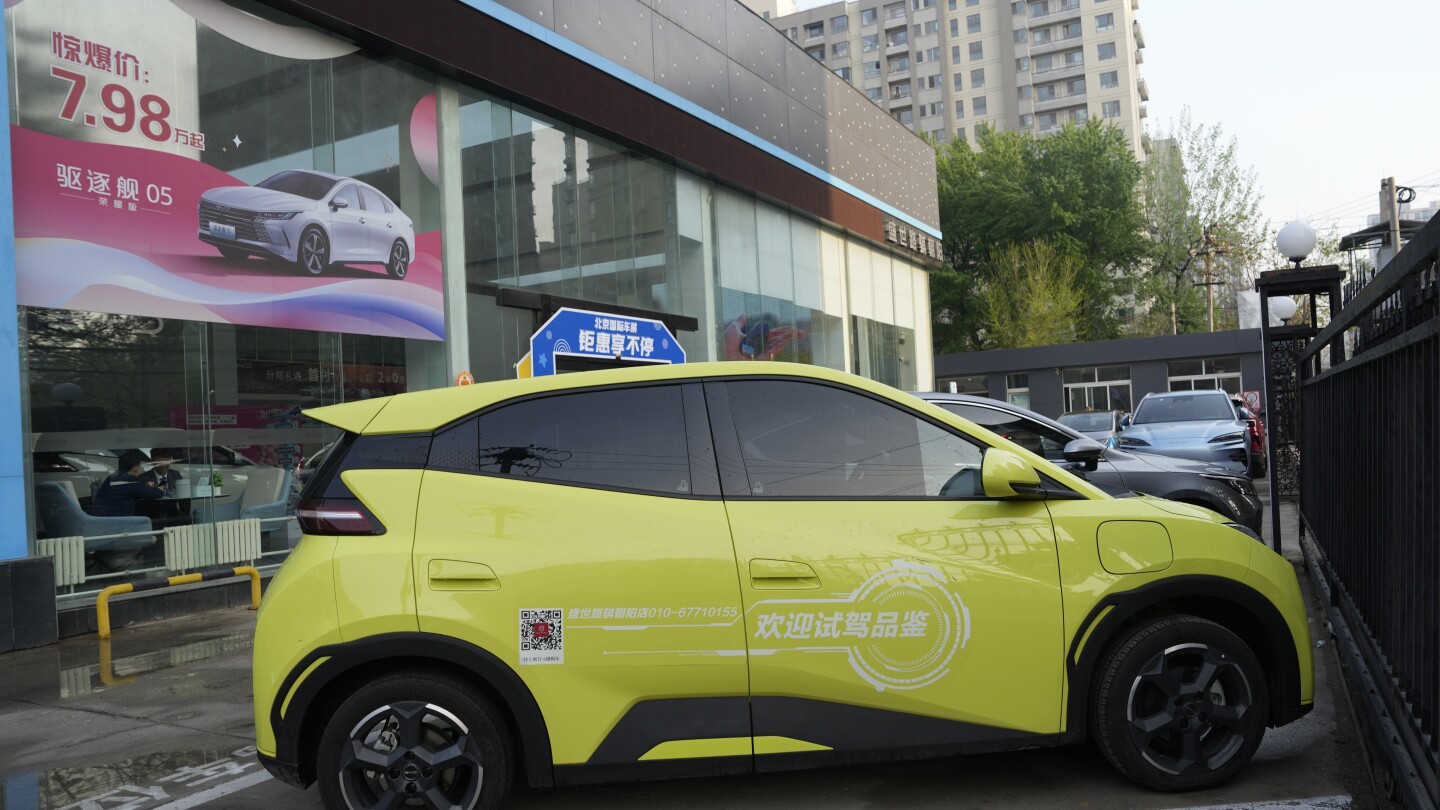A tiny, low-priced electric car called the Seagull has American automakers and politicians trembling.
The car, launched last year by Chinese automaker BYD, sells for around $12,000 in China, but drives well and is put together with craftsmanship that rivals U.S.-made electric vehicles that cost three times as much. A shorter-range version costs under $10,000.
Tariffs on imported Chinese vehicles probably will keep the Seagull away from America’s shores for now, and it likely would sell for more than 12 grand if imported.
But the rapid emergence of low-priced EVs from China could shake up the global auto industry in ways not seen since Japanese makers exploded on the scene during the oil crises of the 1970s. BYD, which stands for “Build Your Dreams,” could be a nightmare for the U.S. auto industry.
“Any car company that’s not paying attention to them as a competitor is going to be lost when they hit their market,” said Sam Fiorani, a vice president at AutoForecast Solutions near Philadelphia. “BYD’s entry into the U.S. market isn’t an if. It’s a when.”



The bigger issue is the U.S. auto dealership industry.
https://www.washingtonpost.com/climate-solutions/2023/11/09/car-dealerships-ev-sales/
If dealerships refuse to sell EVs, what can be done? Especially in states where cars can only be sold from licensed dealerships?
Direct sales, which is becoming increasingly popular in a car market where dealership market ups price people out of purchases.
We’ll see how long that lasts. Dealerships are the last great American petty aristocracy in a business environment that’s increasingly all about absolute monarchies. Tesla has already been lobbying hard to overturn the ban on direct sales in Texas, and is doing plenty to end-run the system in the meanwhile. Amazon would love to get into the automotive market (we’ll see where they go with their Rivian partnership). Silicon Valley hates these guys for getting in the way of their own drop shipping schemes. And its just a matter of time before the dam bursts.